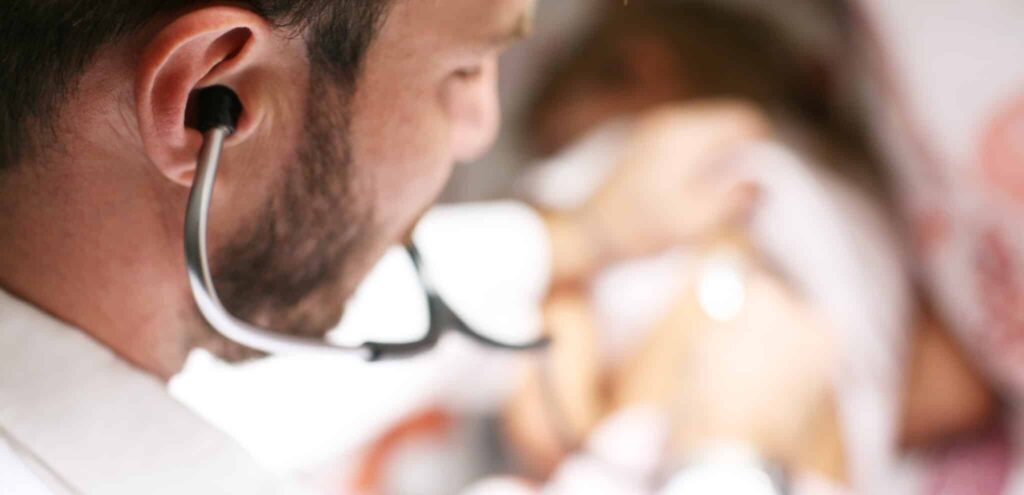PRC Excellence Accelerator® and Healthcare Experience Foundation (HXF) Physician Coach, Trevor Turner, MD, brings his enthusiasm for the patient experience to our HXF partners’ Healthcare Experience Matters podcast this week. Dr. Turner joins us for a discussion about upholding empathy and thorough communication in a demanding patient care setting.
In addition to his HXF coaching role, Dr. Turner is Director of Center for Orthobiologics at Georgia Bone and Joint, a midsized orthopedics practice near Atlanta.
“We’ve learned a lot over the last couple years of the pandemic, and we are fortunate to be here providing care for the musculoskeletal community here in Atlanta,” he said.
In what often can be a hectic environment, it might be easy to lose sight of maintaining proper communication, a calm demeanor, and overall empathy. As the rapid pace of healthcare continues to invite more and more challenges to clinicians and staff, it has never been more important to be mindful of empathy as we learn on today’s podcast.
Another theme of today’s episode is the power of having great mentors. When it comes to mentorship, Dr. Turner learned much of what he practices today, in terms of bedside manner and much more, from his own father.
Dr. Turner grew up watching his dad practice anesthesia at UT Southwestern and Parkland Memorial Hospital in Dallas. This is where Dr. Turner himself would later attend medical school.
“My Dad was bought into the notion of the Hippocratic Oath and the fact that you practice, regardless of somebody’s ability to pay, and you provide compassion to people,” he told us.
When it comes to empathy and keeping your composure in a difficult practice environment, much of what Dr. Turner learned came from his work overseas. These experiences working in Juarez, Mexico, Guatemala, Haiti, and Swaziland have helped him become the empathic, careful communicator he is today.
It taught him to be mindful of managing nonverbal cues, especially if there’s a language barrier. These experiences also demonstrated the importance of being sensitive to the way other people receive communication, especially when their social and cultural mores are different from what you are most familiar with.
“A substantial amount of your rapport with a patient has already been set from that first 10 seconds or so of your initial interaction,” he said.
Listen to the podcast below:


